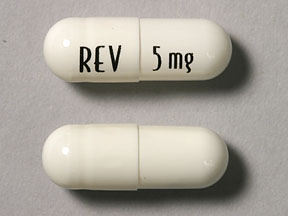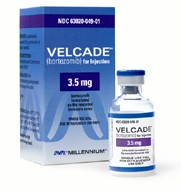
Recently Diagnosed or Relapsed? Stop Looking For a Miracle Cure, and Use Evidence-Based Therapies To Enhance Your Treatment and Prolong Your Remission
Multiple Myeloma an incurable disease, but I have spent the last 25 years in remission using a blend of conventional oncology and evidence-based nutrition, supplementation, and lifestyle therapies from peer-reviewed studies that your oncologist probably hasn't told you about.
Click the orange button to the right to learn more about what you can start doing today.
- You are here:
- Home »
- Blog »
- Multiple Myeloma »
- Myeloma Chemotherapy- Vel. vs. Rev.
Myeloma Chemotherapy- Vel. vs. Rev.

“Treatments containing bortezomib or lenalidomide appear to be similarly efficacious in patients with multiple myeloma (MM) at first relapse…”
You’ve been diagnosed with multiple myeloma (MM) and you’re considering which multiple myeloma chemotherapy regimens to take for your initial, your induction therapy.
According to the research linked below, both Lenalidomide (revlimid) and Bortezomib (velcade) are equally effective at managing multiple myeloma and each regimen is about the same from a safety or side effect standpoint.
If you are a newly diagnosed MM patient with little or no experience in the world of MM therapies in general or MM chemotherapy specifically you may believe that these two therapies (and their associated doublets, triplets or quadruplets) are your only choices. This is simply not the case.
Conventional oncology, by law, can prescribe only FDA approved therapies. This is the way conventional medicine works in the United States. For the record, I believe conventional oncology, MM specialists in particular, are essential to the life of a MM patient or survivor.
While conventional MM therapies such as chemo, radiation and surgery, are all essential tools in the MM toolbox, they are only a small piece of the therapy puzzle. Multiple myeloma chemotherapy is one tiny piece of the therapies available to newly diagnosed MM patients.
The two most important things that MM patients must remember are:
- All MM survivors relapse eventually reaching MRD (multi-drug resistance) and end-stage and
- Conventional therapies cannot cure multiple myeloma-
My research and experience has shown me that multiple myeloma patients must think outside the conventional therapy box in order to achieve the best, longest life as a MM survivor.
Consider which MM chemotherapy is integrative aka synergizes with non-conventional, non-toxic, cytotoxic therapies.
Both MM chemotherapy regimens, Revlimid and Velcade, are FDA approved and will probably be covered by your health insurance. As far as conventional MM chemotherapy goes, both regimens have been around for years and both have been tested, prescribed, vetted, etc.
As cautious as I am of toxic MM chemotherapy regimens, even I believe that Revlimid and Velcade are an essential piece of your therapy puzzle. The key is how much toxicity your body endures as a MM survivor.
According to research, integrative MM therapies can enhance the efficacy of MM chemotherapy while they reduce MM chemotherapy toxicity.
Bortezomib/ Velcade-
Lenalidomide/Revlimid-
As far as integrating with evidence-based, non-toxic therapies, according to my research, bortezomib/velcade has been shown to work with five more therapies than lenalidomide/revlimid has.
In all probability, all newly diagnosed MM patients will take both of these MM chemotherapy regimens. You will probably exhaust both, become MDR to both. My point is to make you aware of the integrative component of these conventional chemotherapy regimens.
Have you been diagnosed with multiple myeloma? Are you considering which MM chemotherapy regimens to undergo for your induction therapy? To learn more about evidence-based complementary and integrative MM therapies scroll down the page, post a question or comment and I will reply to you ASAP.
To learn more about velcade/bortezomib- click now
Thanks and hang in there,
David Emerson
- MM Survivor
- MM Coach
- Director PeopleBeatingCancer
Recommended Reading:
- Multiple Myeloma Chemotherapy = Accelerated Aging
- Multiple Myeloma Chemotherapy- Preventing MM Relapse, Curing MM?
- Multiple Myeloma Side Effects- Secondary Cancers
Comparison of Treatment With Bortezomib and Lenalidomide for Relapsed Multiple Myeloma
“Treatments containing bortezomib or lenalidomide appear to be similarly efficacious in patients with multiple myeloma (MM) at first relapse, according to results from the first head-to-head comparison of the 2 treatments to date.
The open-label, randomized, phase 3 study was recently published in the British Journal of Haematology. Patients were given a fixed duration (9 cycles, 6 induction and 3 consolidation) of bortezomib, cyclophosphamide, and dexamethasone (VCD) or lenalidomide, cyclophosphamide, and dexamethasone (RCD). The primary end point was achievement of very good partial response (VGPR) or better at 6 weeks after treatment.
Overall, 155 patients with a median age 63 years were included in the study and randomly assigned to receive VCD (76 patients) or RCD (79 patients). Median progression-free survival (PFS) with first-line therapy was 3 years (range, 10-51 months). Approximately half of patients (51%) had previously received bortezomib, while 40% and 9% had received conventional chemotherapy and lenalidomide-based treatment, respectively.
VGPR or better was achieved by 15% of patients in the VCD arm and 18% of patients in the RCD arm (P =.70). Median PFS was 16.3 months (95% CI, 12.1-22.4) with VCD and 18.6 months (95% CI, 14.7-25.5) with RCD. The 2-year rate of overall survival was 75% (95% CI, 66%-86%) with VCD and 74% (95% CI, 64%-85%) with RCD. Subgroup analyses did not reveal differences in PFS in bortezomib- and lenalidomide-naive patients or in patients who received bortezomib in first-line therapy.
The safety profiles for both treatment regimens were consistent with those previously reported…”




